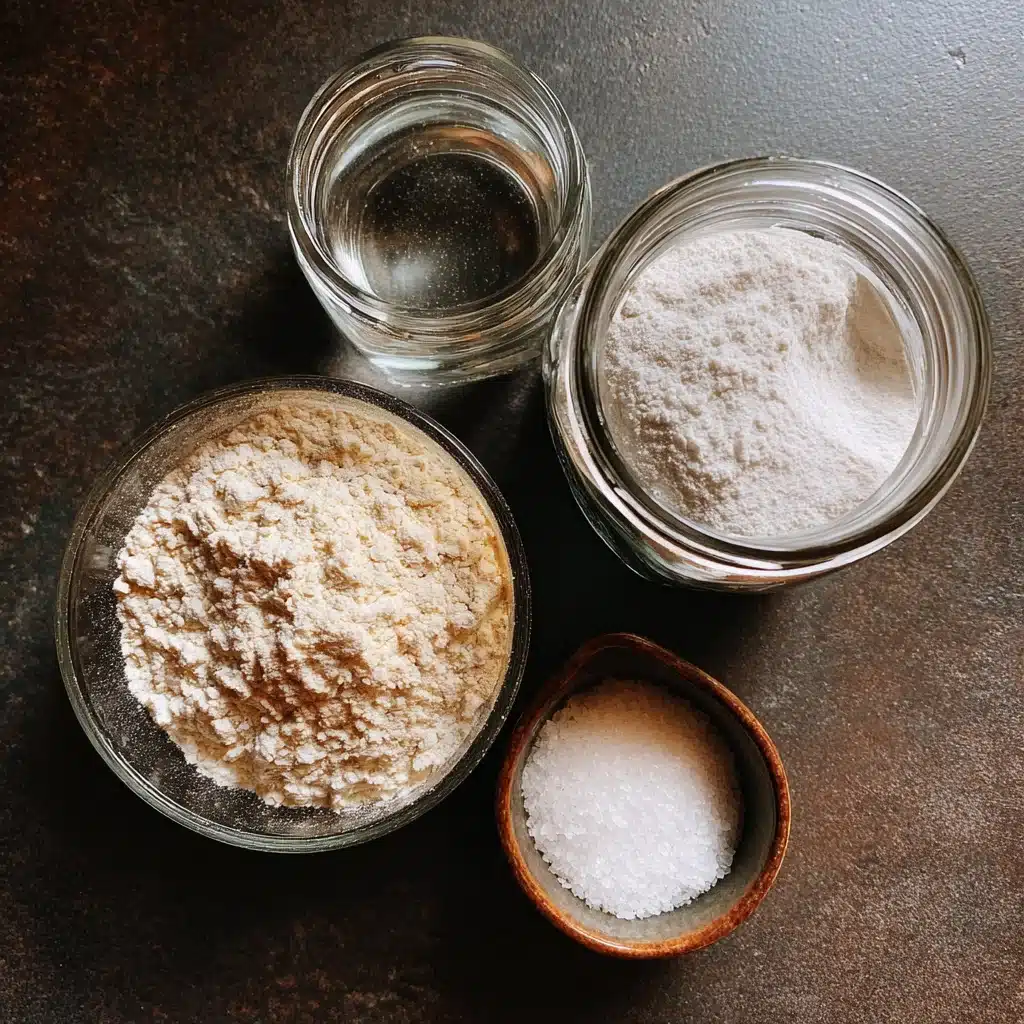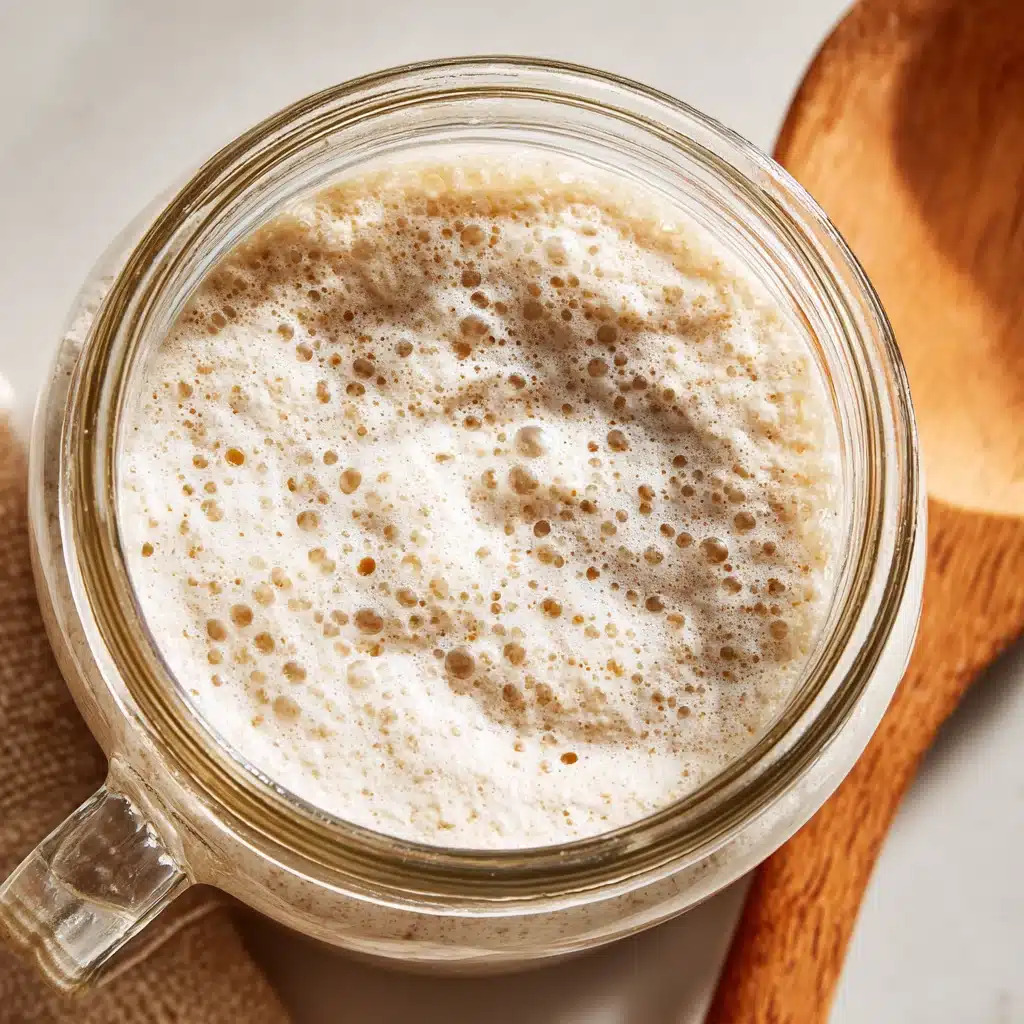Sourdough benefits go far beyond flavor, they touch digestion, blood sugar stability, and even mental well-being. In this article, you’ll discover exactly why sourdough is good for you, how it compares to regular bread, and what happens when you eat it daily. We’ll also explore the real pros and cons of sourdough bread, all through the hands-on lens of my experience as a lifelong baker. Let’s dive in.
Why Is Sourdough Bread Good for You?
A Love Affair Born in Dough and Disaster
I still remember that foggy Mendocino morning. I’d pulled a dense, pale boule from the oven, my first try at sourdough. It was chewy in the wrong way, flavorless, and heavy enough to double as a doorstop. The guy I baked it for never called again. But something about that loaf stayed with me. Maybe it was the smell of fermentation, the crackle of the crust cooling on the counter, or the fact that the process felt like alchemy. I named my starter “Clementine,” and from that day on, I was hooked.
Through trial, error, and a lot of crusty loaves, I discovered the sourdough benefits go far beyond flavor. I wasn’t just baking bread, I was nourishing my body and gut too.
Gut Health, Nutrients & Real Sourdough Benefits
So, why is sourdough bread good for you?
It starts with fermentation. Unlike regular bread, sourdough is made with wild yeast and lactic acid bacteria, creating a longer, slower rise. This process reduces gluten, boosts bioavailable minerals like magnesium and iron, and even increases antioxidants. That means the nutrition in sourdough bread is naturally better for your body than most store-bought loaves.
Sourdough’s lactic acid fermentation breaks down phytic acid, an antinutrient that blocks mineral absorption. Thanks to that, sourdough bread is good for your gut and helps your body digest nutrients more efficiently. Even better? It forms prebiotics that support healthy gut bacteria, making it a top choice for anyone focused on digestive health.
With fewer blood sugar spikes and a lower glycemic index, it’s easy to see why so many people consider sourdough bread healthy enough to eat every day. That’s especially true when you make it with whole grains.
Looking for ways to bake it yourself? Start with our Classic Rustic Sourdough or check out our Beginner Sourdough Tips. They’ll help you unlock even more sourdough benefits right at home.

Is It Okay to Eat Sourdough Bread Daily?
The Everyday Loaf: Can You Really Eat It That Often?
Let me be clear: in my house, sourdough bread is more than a treat, it’s part of our daily rhythm. I eat it nearly every day. Toasted with cultured butter, loaded with avocado, or just warm from the oven, each slice reminds me why the sourdough benefits are worth embracing.
As a baker and teacher, I get asked constantly: is sourdough bread healthy if eaten every day? The answer is yes, when made the right way and eaten mindfully.
Daily Sourdough: Balanced Nutrition & Lasting Benefits
The real beauty of eating sourdough bread daily lies in how it’s made. Traditional fermentation boosts nutrient availability, reduces gluten content, and promotes better digestion. That’s why the nutrition in sourdough bread stands apart from typical store-bought loaves.
Thanks to its long fermentation, sourdough benefits include increased mineral absorption, lower glycemic impact, and enhanced gut health. This makes sourdough bread good for you in ways standard bread just isn’t. Wild yeast and lactic acid bacteria break down phytic acid and gluten proteins, allowing your body to access nutrients more easily while minimizing discomfort.
If you’ve struggled with bloating, fatigue, or sugar crashes from processed breads, switching to sourdough could be transformative. It’s not just about taste, it’s about feeling good. And yes, a slice or two a day is perfectly fine.
To amplify your sourdough benefits, opt for whole grain recipes like our Everyday Whole Wheat Sourdough or Multi-Seed Gut-Boosting Loaf. These recipes were created with long-term health in mind.
Print
Sourdough Benefits: 7 Powerful Reasons It’s Healthier Than Bread
- Total Time: 20 hours (includes overnight fermentation)
- Yield: 1 artisan loaf
- Diet: Vegetarian
Description
This guide explores sourdough benefits including improved digestion, gut health, and nutrient absorption, with insights from baker Marlene Quinn.
Ingredients
Unbleached flour
Filtered water
Active sourdough starter
Sea salt
Instructions
1. In a large bowl, mix flour and water. Let rest for 1 hour (autolyse).
2. Add sourdough starter and mix until incorporated.
3. Cover and let sit for 30 minutes. Add sea salt and fold gently.
4. Perform 4 stretch-and-folds over 3 hours.
5. Bulk ferment for 4–6 hours at room temperature.
6. Shape into a round and place into a floured proofing basket.
7. Refrigerate overnight (12–16 hours) for slow fermentation.
8. Preheat Dutch oven to 475°F. Bake covered for 20 minutes, then uncovered for 20 minutes.
9. Cool on a wire rack for 2 hours before slicing.
Notes
Use whole grain flour for more nutrition.
Feed your starter regularly for a strong rise.
Always bake with an active, bubbly starter for best results.
- Prep Time: 30 minutes
- Cook Time: 40 minutes
- Category: Health Tips
- Method: Fermentation
- Cuisine: American
Nutrition
- Serving Size: 1 slice
- Calories: 188
- Sugar: 1g
- Sodium: 340mg
- Fat: 1g
- Saturated Fat: 0g
- Unsaturated Fat: 1g
- Trans Fat: 0g
- Carbohydrates: 37g
- Fiber: 2g
- Protein: 8g
- Cholesterol: 0mg
Keywords: sourdough benefits, healthy bread, gut health, sourdough nutrition
Sourdough vs. Regular Bread , What’s Healthier?
Breaking Bread: The Health Debate You Should Care About
You’ve probably wondered: Is sourdough healthier than normal bread? I used to think bread was just… bread. But once I started working with naturally fermented dough, the difference became obvious, not just in flavor, but in how I felt after eating it.
That light, satisfied feeling after a sourdough sandwich? That’s no accident. It’s one of the most noticeable sourdough benefits you’ll experience, especially compared to mass-produced loaves made with quick-rise commercial yeast.
Why Sourdough Comes Out on Top (Every Time)
Let’s compare.
Regular bread, the kind you grab off supermarket shelves, is usually made with refined flour, commercial yeast, and additives to speed up fermentation. This fast-tracked process skips the important enzymatic and bacterial activity that makes bread easier to digest and more nutritious.
Sourdough bread, on the other hand, ferments slowly with wild yeast and lactic acid bacteria. That slower rise creates a host of health advantages: it breaks down gluten, reduces phytic acid, increases mineral bioavailability, and even stabilizes blood sugar. Studies show that people eating sourdough have lower glycemic responses than those eating bread made with baker’s yeast.
That’s why many nutritionists and gut health experts recommend sourdough. The sourdough benefits aren’t just trendy, they’re backed by science. And for those watching carbs or struggling with digestion, the lower gluten content and fermented structure of sourdough make it far more friendly.
Need proof? Try a simple side-by-side taste test with our Soft White Sandwich Sourdough and compare it to any store-bought wheat loaf. You’ll not only notice the flavor, you’ll feel the difference in your body.
Want more nutrient-dense recipes? Our Digestive-Friendly Sourdough Bakes are designed with gut health in mind.

The Pros and Cons of Sourdough Bread
It’s Not Perfect, But It’s Pretty Close
I’ll be the first to sing praises of sourdough benefits, but like any food, sourdough isn’t without nuance. As much as I love my daily slice, usually fresh from Clementine’s latest batch, I also believe in honest baking.
So, let’s talk about it: What are the real pros and cons of sourdough bread?
The Benefits: Why Sourdough Earns Its Superfood Status
Here’s what makes sourdough bread good for you:
- Improved Digestibility: Fermentation reduces gluten and breaks down phytic acid, making sourdough easier on your stomach.
- Gut Health Support: Natural prebiotics in sourdough feed good bacteria, promoting better digestion.
- Lower Glycemic Index: Unlike regular bread, sourdough has a gentler impact on blood sugar, reducing energy crashes.
- Nutrient Boost: The fermentation process increases the bioavailability of minerals like magnesium, zinc, and selenium.
- Better Flavor and Texture: The long rise creates complex flavor and a satisfying crust that’s hard to beat.
In short, the nutrition sourdough bread delivers is uniquely bioactive, it works with your body, not against it.
You’ll find more of these benefits in our Low-GI Sourdoughs and our Fermented Foods for Gut Health collections.
The Drawbacks: Worth Knowing, Not Worth Worrying Over
That said, here are a few things to consider:
- Not Gluten-Free: Though sourdough reduces gluten, it doesn’t eliminate it. People with celiac disease should still avoid it unless using gluten-free flours.
- Time-Intensive: Real sourdough takes 3–5 days to build a starter, and another full day to bake. It’s a commitment.
- Store-Bought May Be Misleading: Many commercial “sourdoughs” skip true fermentation, losing much of the benefit. Always check the label or, better yet, bake it yourself.
- Sodium Content: Like all breads, it contains salt, so those watching sodium intake should consume it in moderation.
But compared to ultra-processed white bread, the sourdough benefits still far outweigh the drawbacks.
If you want full control over your ingredients, try our No-Salt Sourdough or our Quick Starter Guide to start baking at home.

Conclusion: Why Sourdough Deserves a Spot in Your Life
From ancient bakers in Egypt to modern kitchens in California, sourdough benefits have stood the test of time. This isn’t just another bread trend, it’s a return to real food, slow fermentation, and gut-friendly nourishment.
When you understand why sourdough bread is good for you, it’s easy to make it a daily part of your diet. From improved digestion and stable energy to deeper flavor and better mineral absorption, the health case for sourdough is strong. Whether you’re interested in the nutrition of sourdough bread, or want to know if sourdough is healthier than regular bread, the answer is a resounding yes, especially when it’s made the traditional way.
If you’re still wondering whether the sourdough benefits are worth the effort, just bake one loaf. The transformation you’ll feel, in your gut, your energy, your mood, is real. Trust me. I’ve seen it in my students, my workshop attendees, and even my kids. Real bread, slow-fermented, brings real results.
And if you’re ready to begin, try one of our starter-friendly sourdough recipes and start experiencing the sourdough benefits in your own kitchen.
FAQ About Sourdough Benefits
Why is sourdough so good for you?
Sourdough bread is easier to digest, has a lower glycemic index, and delivers more absorbable nutrients than regular bread. Its wild fermentation process boosts gut health and reduces gluten and antinutrients, making it one of the most functional, nutrient-friendly breads you can eat.
Is sourdough bread okay to eat daily?
Yes, in moderation. Thanks to its fermentation process, sourdough is more digestible and less likely to spike blood sugar. When made with whole grains, it provides sustained energy, essential minerals, and gut-friendly prebiotics, making it a great everyday choice for many.
Is sourdough healthier than normal bread?
Absolutely. Unlike regular breads made with commercial yeast, sourdough undergoes slow fermentation with wild cultures. This reduces gluten and phytic acid, making minerals more bioavailable and improving overall digestion and metabolic response.
What are the pros and cons of sourdough?
Pros: easier digestion, better nutrient absorption, prebiotic content, lower blood sugar impact, rich flavor.
Cons: not gluten-free, time-intensive to bake, and many commercial versions aren’t true sourdough. Homemade or artisan-baked is best.

